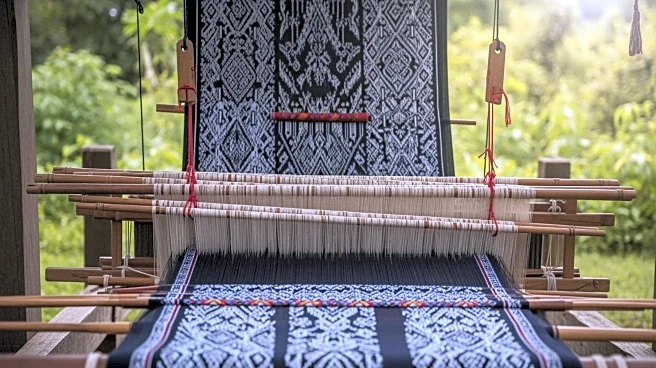What's Happening?
Peace Brigades International-Guatemala (PBI-Guatemala) is providing support to the Maya Ch'orti' Indigenous Council of Olopa Chiquimula during their ongoing legal proceedings. The council members are facing criminalization due to their opposition to mining
activities in their region. On October 31, PBI-Guatemala accompanied the council members at the seventh hearing of their case, where witnesses from the Public Ministry and National Civil Police testified. The witnesses reported not seeing weapons at the scene of the alleged incident. The council's defense is scheduled to present evidence on November 13. The legal challenges stem from the council's resistance to the Cantera Los Manantiales mining company, which holds a 25-year exploitation license granted by the Ministry of Energy and Mines in 2017. The company has faced opposition from the community since January 2019, disrupting its operations.
Why It's Important?
The legal proceedings against the Maya Ch'orti' Indigenous Council highlight the ongoing tensions between indigenous communities and mining companies in Guatemala. The case underscores the broader issue of indigenous rights and environmental protection in the face of economic interests. The involvement of PBI-Guatemala reflects international concern and support for indigenous groups facing criminalization and defamation. The outcome of this case could set a precedent for similar disputes in the region, impacting the balance between resource exploitation and community rights. The situation also draws attention to the role of foreign companies and governments in shaping local development models, as seen in the historical involvement of Canadian entities in Guatemala's mining sector.
What's Next?
The defense for the Maya Ch'orti' Indigenous Council is expected to present its evidence on November 13, which could influence the direction of the legal proceedings. The case may attract further international attention and advocacy, potentially affecting diplomatic relations and foreign investment in Guatemala. The outcome could also impact future policies regarding indigenous rights and environmental protection in the country. Stakeholders, including human rights organizations and environmental groups, are likely to continue monitoring the situation closely.
Beyond the Headlines
The case against the Maya Ch'orti' Indigenous Council raises ethical questions about the criminalization of indigenous resistance and the protection of cultural heritage. It also highlights the long-term implications of resource exploitation on local communities and ecosystems. The involvement of international organizations like PBI-Guatemala suggests a growing recognition of the need for global solidarity in defending human rights and environmental justice.















